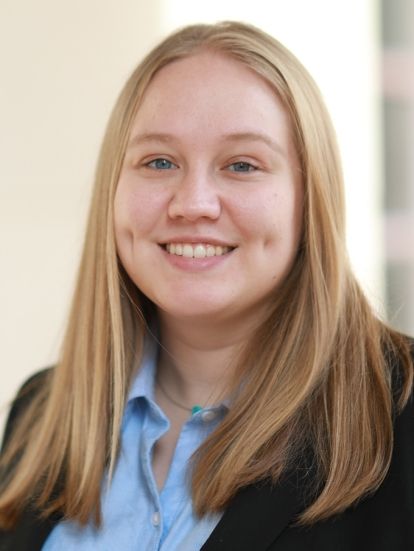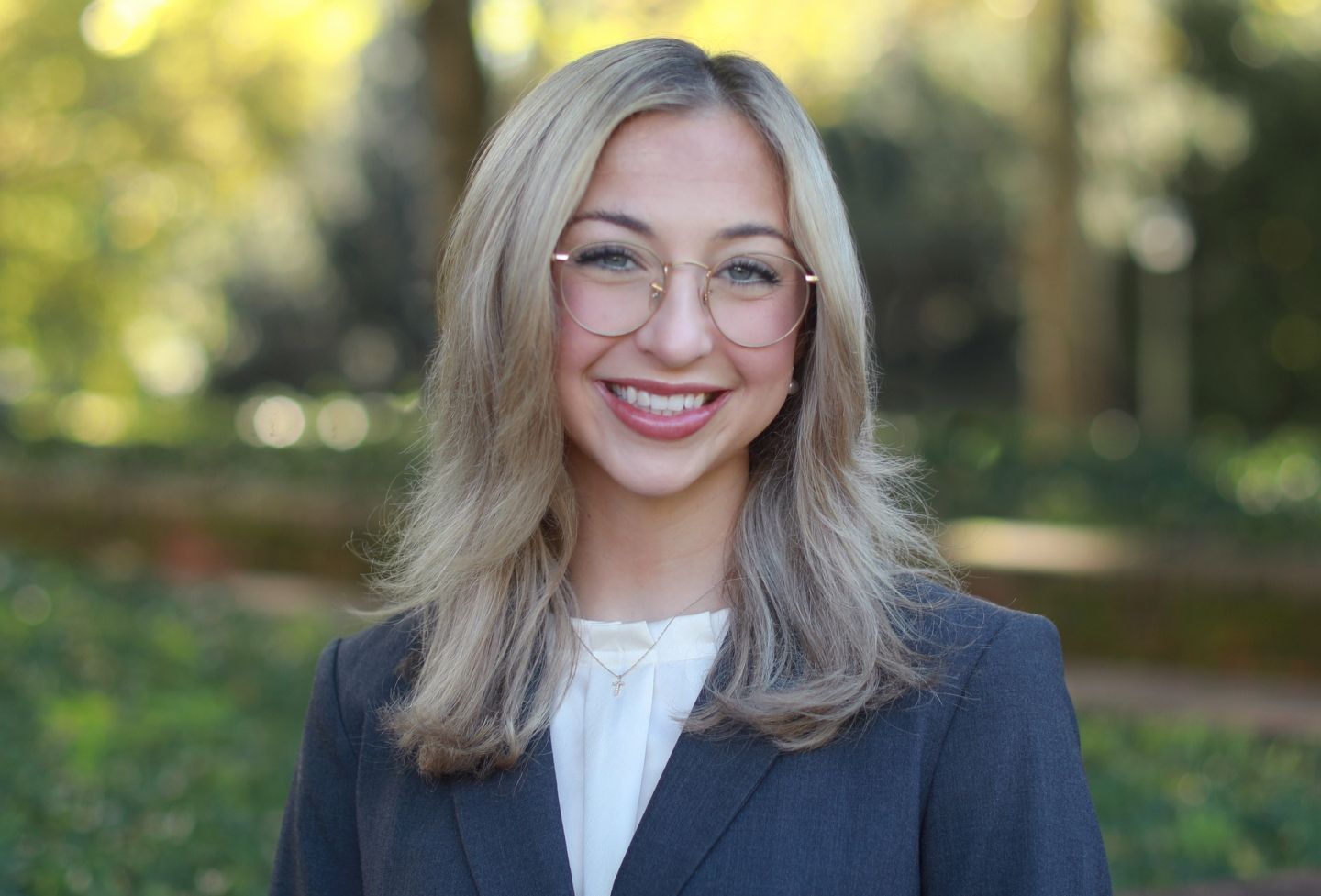This spring break, 61 University of Virginia School of Law students volunteered more than 1,100 pro bono hours in locales ranging from Annapolis, Maryland, to Southeast Pennsylvania, with many others working remotely.
Some students, like Gregory McKnight ’26, spent the week commuting. McKnight drove to Richmond each day of the break to volunteer with Just Neighbors, an organization offering immigration legal services. The projects were arranged and tracked by the Pro Bono Program of the Mortimer Caplin Public Service Center.

Brad Lewinski ’26 and Kylie Mignat ’25 both lent their time to causes that have helped shape their careers. Lewinski volunteered with the Albemarle County Commonwealth’s Attorney’s Office and Mignat worked for Catholic Migration Services for a second spring in a row.
Lewinski spent the week observing how the criminal law system works in action and assisting with an ongoing — and confidential — investigation.
He was often able to pick and choose which courtrooms he visited each day and appreciated being “a fly on the wall” in the prosecutor’s office. “It was so collegial, a very open-door kind of place, and I really enjoyed hearing the attorneys strategize and then seeing those decisions in action at trial,” he said.
Lewinski sat in on the trial of Kevin Moore, who was charged with murder nearly 20 years after 47-year-old Fluvanna County man Jesse Hicks went missing.
“Most Charlottesville prosecutors consider themselves progressive, approaching their work partially from a public defender viewpoint and trying to bring charges that are important to the community. It’s an interesting perspective on prosecution,” he said.
He found the week to be an informative real-world experience and the high stakes to be a sharp departure from the mock trial strategy sessions he’s known.
Lewinski will spend 10 weeks this summer working at the Northern District of California’s U.S. Attorney’s Office, and aims to be a trial litigator after graduation.
“I could either become a trial lawyer or land in a prosecution role — hopefully by the end of the summer, I’ll get more clarity about the decision,” he said.
No further clarity is needed for Mignat, who has been pursuing a particular career path since college. While attending the University of Scranton, she assisted a professor with expert witness reports on behalf of Salvadoran asylum seekers.
For three-and-a-half years during and after her graduate studies at New York University, she worked as a senior paralegal at the New York office of Kids in Need of Defense, helping unaccompanied minors seek legal status in the United States.
“Immigration is what I came to law school to do,” Mignat said. She received a Virginia Public Service Scholarship, a full-tuition award given each year to two or more UVA Law students pursuing public service careers.
She had heard about Catholic Migration Services from her work at KIND and spent last year’s spring break doing asylum work for Catholic Migration, a nonprofit immigration services provider.
This year, she focused on Special Immigrant Juvenile Status cases, working remotely on case law research to establish child neglect and drafting motions to terminate clients’ removal proceedings before immigration judges.
“The biggest takeaway from this work is always how confusing immigration law really is — even to practitioners and attorneys,” Mignat said. “Imagine trying to explain to someone, ‘Your application for immigration relief has just been approved, but there’s still a chance you may be ordered removed from the country if you are currently in removal proceedings.’”
This summer, Mignat will work with the American Bar Association’s South Texas Pro Bono Asylum Representation Project, representing unaccompanied minors who are detained in Harlingen, about 25 minutes from Mexico.
Mignat wants to continue working with children, hopefully in Washington, D.C., after graduation. “I think working with kids is really important work,” she said. “Children have a hard time interacting with the immigration system — they’ve been through a lot of trauma and have to retell their stories hundreds of times. It feels good to be someone they can trust to guide them through the process — someone to lean on a little bit.”
Founded in 1819, the University of Virginia School of Law is the second-oldest continuously operating law school in the nation. Consistently ranked among the top law schools, Virginia is a world-renowned training ground for distinguished lawyers and public servants, instilling in them a commitment to leadership, integrity and community service.


